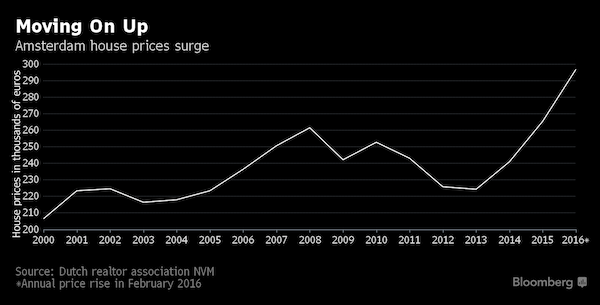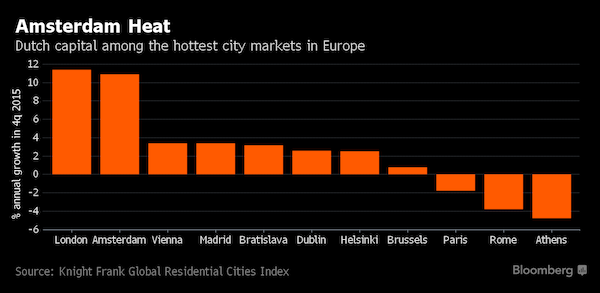
Harris&Ewing Painless Dentist, Washington, DC 1918



Not a bad article, but it is really simple. 1) Centralization stops when growth does, 2) The only thing that’s really been growing for years is debt, and 3) You can’t borrow or buy growth.
• Nervy Global Investors Revisit 1930s Playbook (R.)
Global investors are once again dusting off studies of the 1930s as fears of protectionism, nationalism and a retreat of globalization, sharpened by this week’s Brexit referendum, escalate anew. With markets on tenterhooks over Thursday’s “too close to call” vote on Britain’s future in the EU, the damage an exit vote would deal business activity and world commerce is amplified by the precarious state of the global economy and its inability to absorb any left-field political shocks. As such, the Brexit vote will not be an open-and-shut case regardless of the outcome. Broader worries about global trade, frail growth and dwindling investment returns have festered since the banking shock of 2007/08 and have mounted this year.
Stalling trade growth has already led the world economy to the brink of recession for the second time in a decade, with growth now hovering just above the 2.0-2.5% level most economists say is needed to keep per capita world output stable. Three-month averages for growth of world trade volumes through March this year have turned negative compared with the prior three months, according to the Dutch government statistics body widely cited as the arbiter of global trade data. And it’s not a seasonal blip. Last year saw the biggest drop in imports and exports since 2009 and their average annual growth of 3% over the intervening seven years was itself half that of the 25 years before, according to Swiss asset manager Pictet. 2016 is set to be the fifth sub-par year in row.
A study published by the Centre For Economic Policy Research shows this paltry pace of trade growth is also below the 4.2% average for the past 200 years. Foreign direct investment growth of 2% of world output is also at its lowest since the 1990s, while the hangover from the credit crunch has seen annual growth rates in cross-border bank lending grind to a halt from some 10% in the decade to 2008.

First you blow a bubble, then you warn against it. Without using the term ‘bubble’, of course.
• Fed Warns of Commercial Real Estate Bubble (BBG)
The Federal Reserve warned that prices in the commercial real-estate market may have run up too far too fast. Valuations in commercial real estate “appear increasingly vulnerable to negative shocks, as CRE prices have continued to outpace rental income,” the Fed said in its semiannual Monetary Policy Report to Congress. The Fed noted that prices exceed their pre-crisis peaks by some measures. The Fed included a special section on financial stability risks in the report, which accompanies Chair Janet Yellen’s testimony. The report said that even given “moderate’’ financial vulnerabilities, risks of external shocks, such as the U.K.’s possible exit from the European Union, pose stability risks. The report also highlighted issues related to credit exposures to the energy sector, money-market mutual funds and stock valuations.
The central bank said price-to-earnings ratios on a forward-looking basis for stocks have increased to a level “well above” their median for the past 30 years. “Although equity valuations do not appear to be rich relative to Treasury yields, equity prices are vulnerable to rises in term premiums to more normal levels, especially if a reversion was not motivated by positive news about economic growth,” the Fed said. The Fed said “some structural vulnerabilities are expected to persist” in money-market mutual funds even after Securities and Exchange Commission reforms go fully into effect in October. “Leverage for the non-financial corporate sector has stayed elevated and indicators of corporate credit quality, though still solid overall, continued to show signs of deterioration for lower-rated firms, especially in the energy sector,” the Fed said in its report. Strong U.S. bank capital positions contributed to the resilience of the financial system, the Fed said.

Real estate bubble, stocks bubble: the Fed ia aware of all.
• Federal Reserve Says US Stocks Have Gotten Expensive (MW)
Even the Federal Reserve is weighing in on valuations in the U.S. stock market. In its monetary policy report submitted to the Congress ahead of Federal Reserve Chairwoman Janet Yellen’s testimony, the central bank acknowledges that stock values have grown somewhat richer since the beginning of 2016. Here’s how they put it: “Forward price-to-earnings ratios for equities have increased to a level well above their median of the past three decades. Although equity valuations do not appear to be rich relative to Treasury yields, equity prices are vulnerable to rises in term premiums to more normal levels, especially if a reversion was not motivated by positive news about economic growth.”
The S&P 500 closed higher Tuesday, up 0.3% at 2,088 and it appears investors are shrugging off both the testimony and the report on valuations. Of course, not everyone views the Fed as an authority on stock values and some analysts and traders disagree with the notion that equities have gotten pricey. “No one looks to the Fed as a chief market strategist and markets have their own dynamics on valuing stocks,” said Quincy Krosby at Prudential Financial. In Crosby’s opinion “stocks are fully valued at these levels.” She says “what investors want to hear is whether companies’ earnings will start improving. Whether the Fed decides that stocks are undervalued or overvalued does not have an impact on prices.”
Wall Street tends to turn to the U.S. central bank for clues about the pace of interest-rate increases, the health of the labor market and to get a gauge on inflation. It’s rare that it offers specifics on sectors or assets but it isn’t totally unprecedented. Back in 2014, Yellen said valuations for technology stocks were stretched in her congressional testimony, resulting in a selloff in social-media names, which were booming at the time. Going back to mid-1990s, former Fed Chairman Alan Greenspan sounded the alarm on tech stocks too. But his famous “irrational exuberance” comments didn’t pop the tech bubble when he delivered them in 1996. It would take another four years before the air rushed out.

The perversity of low rates.
• Amsterdam Housing Market Is Overheating (BBG)
It’s getting hot in the Amsterdam property market. The Netherlands, the nation of tulipmania almost 400 years ago, saw prices in its capital city surge almost 21% in the first quarter. While the blame partly falls on a simple supply-and-demand imbalance, the signs are pointing to a potential squeeze. In London, by comparison, government data show prices rose about 14% from a year earlier, according to Savills Plc. In a market where almost half of properties are owned by non-profit corporations, mainly for social housing, there’s just not enough coming on to the market to satisfy buyers. After falling about 14% in five years, prices have rebounded recently and are now above pre-crisis levels.

“The Amsterdam housing market shows signs of overheating,” said Frans Schilder, who studies housing policy in the economics department at the University of Amsterdam. “The prices are absurd but I don’t expect them to fall in the near future.” Any houses coming up for sale in the Amsterdam region are scooped up immediately. The supply shortage is a hangover from the financial crisis, which restrained new building and led to more families choosing to remain in the city, as it was harder to sell properties at a profit. In the first quarter of 2016, all houses that came on the market were sold, nearly half for more than the asking price. The asking price for an average house rose 5% from a month ago in May while it was up 26% from a year earlier, the Dutch bureau of statistics said Tuesday.


Imbalance sheet.
• ECB Balance Sheet Hits Record High -With Stocks At 18-Month Lows- (ZH)
Draghi, we have a problem.
The European Central Bank's balance sheet has reached a new record high this week – surpassing the chaotic expansion peak in 2012 – as Mario Draghi prepares to unleash TLTRO-II, which will definitely increase this time (just like LTRO and NIRP didn't!)

"Fool me once" in 2011/12 but not in 2015/16.
Given the utter failure to create any 'real' economic gains via the expansion of the ECB balance sheet, the plunge in stock prices (and thus crushing the trickle-down wealth-creation mandate) leaves Draghi in the same boat as Yellen – utterly impotent.

Which is ironic because this is what Draghi just said…
- *DRAGHI SAYS ECB ACTION PUT RECOVERY ON MORE SOLID FOOTING
- *DRAGHI SAYS GROWTH, INFLATION WOULD BE LOWER WITHOUT ECB ACTION
Though we'll never know, can you imagine just how bad things are in reality?

Excuse me? “Accumulating emergency savings requires establishing the habit.”
• Some 66 Million Americans Have ‘Zero’ Emergency Savings (MW)
Around 28% of U.S. adults have saved “zero dollars” for an emergency, according to a survey released Tuesday of 1,000 U.S. adults by personal savings website Bankrate.com carried out by Princeton Survey Research Associates International, a polling firm. When extrapolated for the entire 234.6 million U.S. adult population, that’s equivalent to 66 million people. That’s down from 29% last year, but up from 24% in five years ago. Another 28% of adults have saved enough money to last six months, up from 22% from last year and a six-year high; 18% had some emergency savings, but not enough for six months. Generation Xers are in the worst position of all generations: 33% of 36- to 51-year-olds haven’t saved anything for an emergency.
Millions of Americans are struggling with student loans, medical bills and other debts, experts say, and although Central bankers hiked their short-term interest rate target last December to a range of 0.25% to 0.50% from near-zero, that’s still a small return for savings left in bank accounts. Many investors are behaving like another imminent rate hike is highly unlikely, MarketWatch columnist Jeff Reeves wrote this month. “Expenses grow faster than many Americans can save during the home-buying, family-raising years,” says Greg McBride, chief financial analyst at Bankrate.com. “Accumulating emergency savings requires establishing the habit.”

Slowly going very wrong – again.
• Increase In Refugees Reaching Aegean Islands Fuels Concern (Kath.)
The influx of would-be migrants into Greece from neighboring Turkey is decisively on the increase following several months during which the flow had been staunched thanks to a European Union deal with Ankara to crack down on people smuggling. Over the long weekend, 270 migrants arrived on Greek islands in the eastern Aegean while arrivals in the first 20 days of June came to 981. The renewed influx is putting increased pressure on reception facilities on the islands, which according to local authorities are already full. Meanwhile, Greek committees are continuing to process hundreds of asylum applications. Greek authorities have rejected dozens of these applications, of which 70 were upheld by appeal committees that ruled Turkey is an “unsafe country” to send migrants back to.
In an apparent bid to curb the number of rulings upholding appeals, the government passed a legislative amendment last week which removes the representative of the Hellenic League for Human Rights from the appeal committees, which feature two judges and a representative of the United Nations refugee agency. The HLHR rapped the government for changing the composition of the committees instead of applying pressure to ensure that Turkey becomes a safe country to make migrant returns viable. In a related development the UN revealed on Tuesday that the number of people displaced from their homes due to conflict and persecution last year exceeded 60 million for the first time since the organization was founded in 1945.








